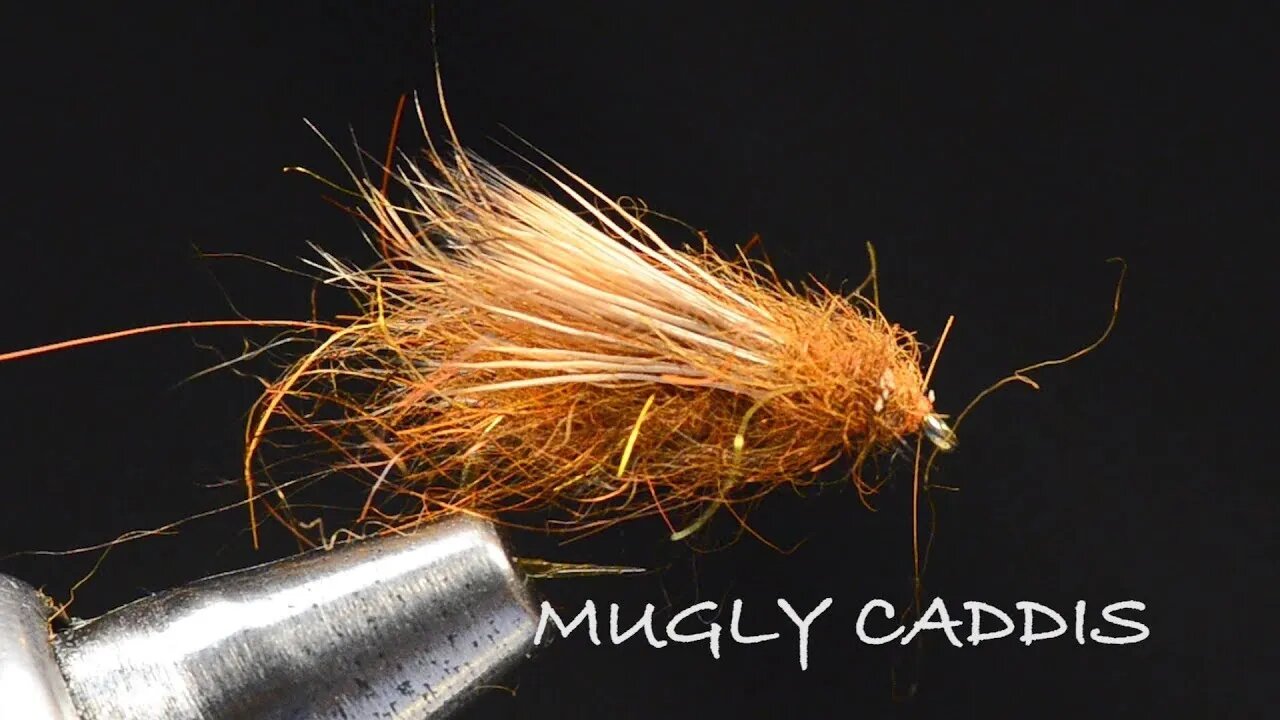Premium Only Content

Mugly Caddis Fly Tying Video - Tied By Charlie Craven
Materials Needed:
Hook: TMC 100SP-BL #12-20 - https://charliesflyboxinc.com/product/tmc-100sp-bl-100pk/
Thread: 8/0 Camel Uni - https://charliesflyboxinc.com/product/8-0-uni-thread/
Abdomen: Whitlock SLF Dubbing Brown Stone Nymph - https://charliesflyboxinc.com/product/whitlock-slf-dubbing/
Underwing: Snowshoe Rabbit Foot Hair Natural Cream/Tan - https://charliesflyboxinc.com/product/snowshoe-rabbit-feet/
Overwing: Comparadun Deer Hair - https://charliesflyboxinc.com/product/comparadun-deer/
Thorax: Whitlock SLF Dubbing Brown Stone Nymph - https://charliesflyboxinc.com/product/whitlock-slf-dubbing/
The Mugly Caddis is a pattern I developed after my first evening on the Henry's Fork. I had fished to sporadically rising fish all evening with little success. Meanwhile, another angler, slightly downstream seemed to be hooked up every time I looked his way. I cornered him near dark and with a sharp jab to the back of the head, put him to sleep for a few minutes while I inspected his pattern. The fly he was using was both disappointing and offensive to my fly tying sensibilities. It was merely a no hackle elk hair caddis pattern tied with a poorly dubbed body. The dubbing was too long with strands hanging out all over the place and the wing was too sparse. I hated it.
I went back to my room and tied up a few variations of the poor guy’s fly and proceeded to use them for the rest of the week with great success.
Once I got back to Colorado, I sat down and perfected the pattern. The Whitlock SLF blend dubbing is a perfect match for this scraggly bug and the CDC underwing provided more movement and better flotation than the elk hair on the original.
I believe this pattern imitates a stuck in the shuck caddis, trapped partially in the nymphal shuck. The long fibered dubbing imitates the struggling legs of the natural and traps air bubbles to closer mimic the emergent caddis.
I fish this fly both dry and wet. I will often let it swing under at the end of the drift and hang for a second or two before recasting. The Mugly can draw some incredibly aggressive strikes and it is important to remember to drop the rod tip to avoid breaking the fish off on the strike.
I think of the poor guy I cracked every time I use this pattern and send him a silent thank you. It's the least I could do.
PLEASE SUBSCRIBE!! - http://bit.ly/2FhqqtL
CONNECT WITH US ONLINE:
Visit Our Website: http://www.intheriffle.com
Follow Us On Facebook: http://www.facebook.com/InTheRiffle
Follow Us On Instagram: http://instagram.com/intheriffle/#
Follow Us On Twitter: http://twitter.com/InTheRiffle
-
 2:20:02
2:20:02
Side Scrollers Podcast
17 hours agoSYDNEY SWEENEY JEANS CONTROVERSY BREAKS THE INTERNET + TWITCH APOCALYPSE + MORE | SIDE SCROLLERS
45K8 -
 3:10:02
3:10:02
Price of Reason
12 hours agoTrump Tariffs Are GOOD? Syndey Sweeney Faces WOKE Backlash! Fantastic Four FLOPS! Mouthwashing BAN!
7502 -
 19:10
19:10
GritsGG
14 hours agoSolo Warzone 30 Bomb!
2.8K1 -
 LIVE
LIVE
LimpStinker
1 hour agoZelda BOTW on Switch 2
25 watching -
 LIVE
LIVE
RECON-RAT Guns & Gaming
23 hours ago $0.02 earnedRECON-RAT - Battlefield Marathon! - BF1 -BFV - BF2042
30 watching -
 1:54:08
1:54:08
The Michelle Moore Show
19 hours ago'Medical Preparedness...Your Gateway to Freedom, Foods Parasites Hate, and more' Guest, Dr. Shawn Rowland, Founder of Jase Medical: The Michelle Moore Show (July 29, 2025)
12.2K8 -
 15:05
15:05
The Pascal Show
11 hours ago $0.89 earnedHOLY SH*T! The Missing Minute From Epstein’s Jail Video Has Been FOUND
5.53K5 -
 LIVE
LIVE
Lofi Girl
2 years agoSynthwave Radio 🌌 - beats to chill/game to
188 watching -
 2:14:32
2:14:32
Inverted World Live
9 hours agoHarvard Astronomer Says Hostile Alien Spaceship Heading Toward Earth | Ep. 82
220K50 -
 2:29:34
2:29:34
Brandon Gentile
4 days agoHow To Retire 10 Years Early with Just 0.1 Bitcoin
9.44K6